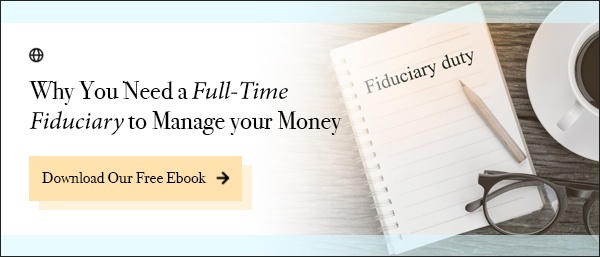Global View Investment Blog
Is Your Retirement Portfolio a Tax Bomb Waiting To Happen?
Retirement Planning, Taxes & Tax Planning, Investment & Portfolio Management
High-income earners often face a conundrum regarding retirement planning: tax breaks now could cause tax pain later. A seemingly perfect portfolio could indeed be a ticking tax bomb, but there are steps you can take to defuse it. As Greenville fiduciary investment advisors, we work with successful business owners, entrepreneurs, professionals, and executives to build tax-efficient retirement plans and investment strategies that diffuse potential tax consequences at retirement.
The "tax bomb" in retirement usually refers to a significant tax liability arising from incorrect planning, particularly regarding withdrawals from retirement accounts, social security benefits, and pension payments. Here are some strategies to consider to help avoid a tax bomb when you retire:
1. Using Roth IRAs or Roth 401(k)s can help avoid future taxes, as distributions from these accounts are generally tax-free in retirement years. However, contributions to these accounts are made with after-tax dollars, so you won't get a tax break when you contribute.
2. Keep your savings in different types of tax accounts (tax-deferred, tax-free, and taxable). This strategy can provide flexibility in retirement, allowing you to manage your income and tax brackets more effectively.
Contemplating your retirement? Read our popular Quick Guide on Navigating Your Transition to Retirement.
3. Required Minimum Distributions (RMDs) are minimum amounts a retirement plan account owner must withdraw annually. The Secure Act 2.0 legislation raises the starting age for Required Minimum Distributions (RMDs) to 73 for individuals who reach the age of 72 on or after January 1, 2023. Failure to take required RMDs can result in a hefty tax penalty. Be sure to manage these properly to avoid unnecessary taxes.
4. Consider making withdrawals from your retirement accounts before you're required to start taking RMDs. This strategy may help spread your tax liability over a longer period and potentially keep you in a lower tax bracket.
5. Part of your Social Security benefits may be subject to income tax, depending on your retirement income. In some cases, it can be advantageous to delay Social Security to reduce the taxable income you receive in the early retirement years.
6. Create a plan around which accounts you will withdraw from each year to minimize taxes. Generally, it may be beneficial to withdraw from taxable accounts first, then tax-deferred accounts, and finally, Roth accounts. This strategy can vary based on your tax situation.
The Double-Edged Sword of Tax Breaks
Tax-advantaged retirement accounts like 401k plans are popular ways to accumulate retirement assets for high-income earners. Contributions to these plans lower your taxable income now, and that's an irrefutable advantage. However, the tax issue arises when it's time to make withdrawals during retirement years. Your distributions will be taxed as ordinary income. Essentially, you're not avoiding taxes but deferring them to a later date when you are no longer working and may be in a lower tax bracket.
Lowering your tax burden is an unequivocal win when you're in the midst of a high-income earning career. Yet, many individuals need to consider that they might still be in a high tax bracket after they retire. If this applies, the tax bill waiting for you could be substantial, turning your retirement portfolio into a tax bomb.
The Role of RMDs
Adding fuel to this impending tax bomb Required Minimum Distribution (RMD) requirements. After you reach age 73, the IRS mandates that you take minimum distributions from your traditional retirement accounts, thereby triggering taxes on those withdrawals. The net result, RMDs can push you into a higher tax bracket, exacerbating the tax pain.
Roth Conversions: A Possible Solution
One strategy to consider is a Roth conversion. This involves moving funds from a traditional IRA or 401k to a Roth IRA. The catch is that you'll have to pay income taxes on the conversion amount in the year it's done. However, this could be a beneficial tax strategy if you expect a higher tax bracket later in life. These conversions can be staggered over the years, reducing the tax impact in particular years. The benefit occurs during retirement years because Roth IRA distributions are tax-free.
Determining if a Roth conversion is right for you involves the development of a comprehensive financial plan that considers your current tax bracket, expected future income, amounts of retirement assets, and your need for income when you are retired. Engaging with a fee-only financial advisor in Greenville, SC, can provide a clear analysis to help you make informed decisions.
Health Savings Accounts: Another Strategy for Defusing the Tax Bomb
Another tactic that can help reduce potential tax liabilities in retirement is a Health Savings Account (HSA). HSAs offer triple tax advantages because: contributions are tax-deductible, the account grows tax-free, and withdrawals for qualified medical expenses are tax-free. After age 65, you can use your HSA for any expense without penalty, although non-medical withdrawals will be taxed as income.
If you anticipate having higher medical expenses during retirement, creating an HSA could be another strategy for reducing the tax bomb. However, it's important to remember that HSAs are just one component of a larger retirement plan.
The Bottom Line
Navigating retirement planning, particularly for high-income earners, can be complicated. As fee-only fiduciary advisors in Greenville, SC, we believe in developing strategies tailored to clients’ circumstances. There is no “one size fits all” advice. By carefully considering tax implications now and in the future, it's possible to defuse the potential tax bomb lurking in your retirement portfolio.
Remember, your situation and goals are unique. That’s why it takes a comprehensive approach.
The Global-View Investment Advisors team of fiduciary financial advisors in Greenville, South Carolina, specializes in creating retirement plans that focus on your short and long-term needs. We focus on minimizing your tax liabilities with tax-efficient investment strategies.
Making the right choices isn't a concept exclusive to investing. When you have significant wealth, it's critical to have adequate support because the stakes are much higher.
Numerous investors have faltered due to avoidable errors, leading us to adopt a distinct retirement and tax planning strategy. We're among the few wealth management firms in the Carolinas to provide family-office-style services to our clients.
Don't let your retirement portfolio be a tax bomb waiting to explode. Take a proactive approach to your retirement planning and consider contacting our Greenville fiduciary advisor team. Your family will thank you.

Written by Matthew Crider
Matt is a CERTIFIED FINANCIAL PLANNER™ professional who has been in the financial advisory business since 2008. He holds a BA in Marketing and Management from the University of Cincinnati and his MBA from Clemson University. Prior to Global View, Matt began his career with Fidelity Investments. His specialties at Global View include asset accumulation and investment strategies; college funding strategies; budgeting discipline and analysis; multi-generational planning; and life event changes, such as marriage, kids, home purchase, retirement, etc.
Are you on track for the future you want?
Schedule a free, no-strings-attached portfolio review today.
Talk With Us





